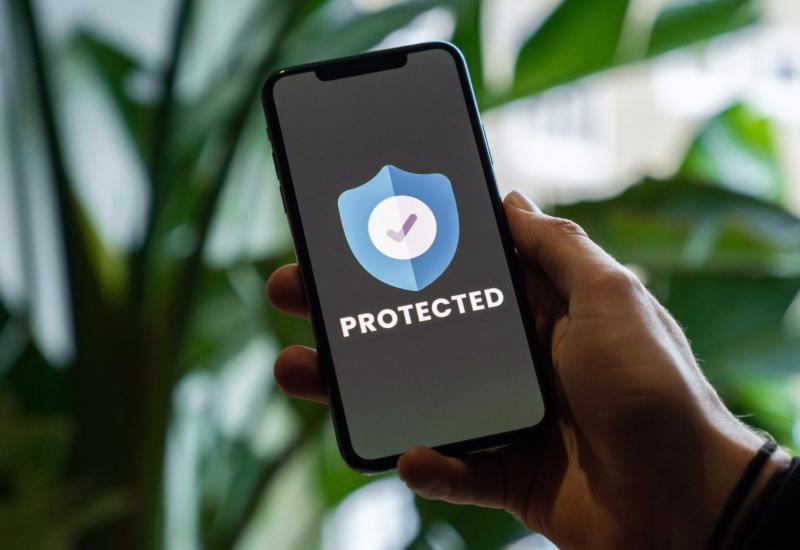Start Building Your Child’s Credit
The alarming trend of identity theft is becoming more prevalent in today’s digital age. With the advancement of technology, sophisticated methods for stealing personal information have continued to emerge.
As a result, over 40 million people in the United States were victims of this insidious crime in 2022 alone, racking up billions of dollars in losses. But how can you protect your identity? This comprehensive guide aims to equip you with the tools, strategies, and best practices necessary to fortify your defenses against identity theft.
Six Most Common Types of Identity Theft
Identity theft is an ever-growing issue that can cause financial, personal, and legal issues. To protect yourself better, it’s important to be aware of the different types of identity theft. Here are the six most common ones:
- Financial identity theft
- Tax identity theft
- Criminal identity theft
- Medical identity theft
- Child identity theft
- Synthetic identity fraud
Financial Identity Theft
Financial identity theft is a serious crime in which criminals access confidential financial information, such as banking, credit, and debit card details. The stolen data can then be used to make fraudulent purchases or gain access to accounts. To avoid this, consumers must remain vigilant with their details online and check bank statements regularly for suspicious activity.
Tax Identity Theft
This type of fraud occurs when someone steals your Social Security number (SSN) or other personal information to file tax returns and claim refunds. Unfortunately, restoring your finances can take a lot of time and effort if you’re a victim of this crime because it’s difficult to prove you’re not responsible. However, you can protect yourself from falling victim to tax identity theft by taking simple actions such as regularly monitoring your financial accounts.
Criminal Identity Theft
Criminal identity theft is when someone pretends to be another person. This can cause serious disruption and financial loss, as the thief often takes out loans or obtains services using false information. Fortunately, there are ways to detect this type of crime, such as monitoring account statements and actively searching your name on public records databases.
Medical Identity Theft
Medical identity theft occurs when malicious individuals gain access to private medical information and misuse it for their own gain. This puts individuals at risk of financial loss, stolen healthcare services, blackmail, defamation, or other damages. To protect yourself from medical ID theft, it’s important to guard your private health information closely and be alert to any signs that someone else has accessed it.
Child Identity Theft
Carrying devastating consequences for children, child identity theft is a serious crime in which someone steals a child’s personal information, such as their SSN, birth date, or name. Identity thieves can use this information to open new credit accounts, take out loans, or even commit medical fraud in the child’s name—this can damage the child’s credit report and make it difficult for them to obtain credit or loans in the future.
Fortunately, parents can take steps to protect their children from identity theft, such as being careful about who they give their child’s personal information to and monitoring their child’s credit reports.
Synthetic Identity Fraud
Synthetic identity fraud is a highly complex issue, as criminals use stolen data to create an entirely fake persona. It’s difficult to detect because criminals take pieces of stolen identities, combine them with realistic but false information, and then open up fake accounts. Synthetic identity criminals often seek credit card services in their victims’ names or set up loan operations that run off the radar for months before getting caught. In most cases, victims are unaware of the crime being committed until it’s too late and can face considerable financial losses when the crime is discovered.
How To Protect Yourself From Online Identity Theft

Online scams are the most prevalent way for thieves to acquire personal information due to the widespread use of the internet today. In 2022, the FBI received over 800,000 complaints of internet crime in the U.S., resulting in losses exceeding $10 billion. Protecting your identity is a task that can greatly reduce the likelihood of becoming a victim of cybercrime. Here are five essential tips to help safeguard your personal information from online identity theft:
- Create strong online passwords
- Keep financial information private
- Beware of email scams
- Check credit reports regularly
- Freeze your credit
Create Strong Online Passwords
Creating strong passwords is one of the most effective ways to prevent identity theft online. Here are some ways to create passwords that will keep your data safe:
- Using a combination of letters, numbers, and symbols when creating passwords
- Not recycling passwords across multiple sites
- Avoiding using obvious words or phrases such as “password” or birthdays that may easily be guessed by hackers
- Changing passwords often and not sharing them with anyone
Keep Financial Information Private
Since your banking details, credit card numbers, or passwords can be used for malicious purposes, it’s important to avoid sharing them with anyone—even those you trust. When shopping online, use secure payment gateways that ask for multi-factor authentication like one-time passwords and employ encryption technologies to protect the transaction information. Additionally, avoid using public Wi-Fi networks without a VPN, as it could expose any sensitive information you send or receive.
Beware of Email Scams
Email scams are clever attempts to get access to your personal information. To protect your identity, be alert and suspicious of any emails sent from unexpected sources. Don’t open attachments or click on links unless you’re sure they’re secure.
Check for typos or unusual language, as well as inconsistencies in the sender’s name, which may indicate a spoofed email. Most importantly, never give out your personal information via email if you’re not sure of the source.
Check Credit Reports Regularly
Monitoring your credit report can help you find out if someone has stolen your info and used it to engage in unauthorized financial activities or open fraudulent accounts in your name. Checking this at least once a year is key for spotting suspicious activity early and keeping identity criminals away.
Additionally, you can set up alerts so that you’re notified immediately if there’s any change in your accounts, such as a late payment or a new account opened in your name.
Freeze Your Credit
In case someone has managed to steal your info online, you can freeze your credit to prevent identity criminals from opening accounts using your information, which can help defend against identity theft. All you need to do is contact the three major consumer credit bureaus—Experian, TransUnion, and Equifax—to request a freeze on your files.
Ultimately, protecting personal identity is no longer an option—it’s a necessity if you want to avoid the crippling repercussions that come with being a victim of identity theft.
Top Products and Services for Enhanced Identity Security

Modern technology has made online ID security more important than ever. To ensure that your identity is safe, here are some products designed to protect it:
- Biometric verification software—This technology uses fingerprints, retinal scans, and other biometrics to verify a person’s identity
- Password managers—Securely stores usernames, passwords, and other sensitive data so you can keep track of them more easily
- Anti-phishing software—Filters email for malicious links and blocks access to dangerous websites that could contain ID theft schemes
- Encrypted messaging apps—Help you send private messages using military-grade encryption, ensuring your conversations are secure from outside parties
- Firewalls/VPNs—Provide an extra layer of online security by creating a secure connection between your computer and the internet, keeping hackers out while protecting your IP address from being tracked or monitored
- Identity theft monitoring services—An identity theft protection service like FreeKick can help monitor your credit reports and other sensitive information for signs of identity theft, helping protect you and your family from fraud
FreeKick Keeps Your Family Safe From Identity Crime
Offered by Austin Capital Bank, FreeKick is an FDIC-insured deposit account that protects your family’s identities and helps build credit for your children.
A secure identity is important for major life milestones, such as securing a college loan and landing a good job. Unfortunately, child identity theft occurs every 30 seconds, which is why it’s crucial to take all precautions against this crime—like using a good identity protection service.
Identity Protection With FreeKick
FreeKick’s identity protection services cover your entire family. Here’s what the service offers for minors and adults:
| Services for Minors | Services for Adult Children and Parents |
| Credit profile monitoring Social Security number (SSN) monitoring Dark web monitoring for children’s personal information Up to $1 million identity theft insurance Full-service white-glove concierge credit restoration Sex offender monitoring—based on sponsor parent’s address | Credit profile monitoring SSN monitoring Dark web monitoring for personal information Up to $1 million identity theft insurance Full-service white-glove concierge credit restoration Lost wallet protection Court records monitoring Change of address monitoring Non-credit (Payday) loan monitoring Free FICO® Score monthly FICO® Score factors Experian credit report monthly |
Credit Building With FreeKick
Secure identities must be complemented by a good credit profile for financial success in life. Enter FreeKick’s credit building service, which is available for children between 13 and 25 years of age.
You’ll have to take three steps to activate the service:
- Create an Account—Create an account at FreeKick.bank and choose a deposit that suits your budget
- Set It and Forget It—Once you activate the account, FreeKick will start building 12 months’ worth of credit history for your child
- Keep Growing—After 12 months, you can close the account without any fees or continue building credit for your family for another year
As a result of establishing credit early, your child will get a credit history head start of up to five years when they turn 18. By enabling them to secure better loan terms and other financial benefits, this will help them save $200,000 during their lifetime.
FreeKick Pricing
FreeKick has two pricing plans:
| FDIC-Insured Deposit | Annual Fee |
| $3,000 | $0 (Free) |
| No deposit | $149 |
Each plan offers:
- Credit building for six children aged 13 to 25
- Identity protection for two parents and six children aged 0 to 25
Secure your family’s identities and their financial future—sign up for FreeKick today.

Freekick provides a double dose of financial empowerment and security for your whole family. It helps teens and young adults build strong credit profiles and offers identity motoring for up to two adult parents and six children under 25.





